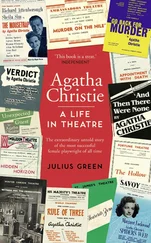Alice Green - Town Life in the Fifteenth Century, Volume 1
Здесь есть возможность читать онлайн «Alice Green - Town Life in the Fifteenth Century, Volume 1» — ознакомительный отрывок электронной книги совершенно бесплатно, а после прочтения отрывка купить полную версию. В некоторых случаях можно слушать аудио, скачать через торрент в формате fb2 и присутствует краткое содержание. Жанр: literature_19, foreign_antique, foreign_prose, Историческая проза, на английском языке. Описание произведения, (предисловие) а так же отзывы посетителей доступны на портале библиотеки ЛибКат.
- Название:Town Life in the Fifteenth Century, Volume 1
- Автор:
- Жанр:
- Год:неизвестен
- ISBN:нет данных
- Рейтинг книги:3 / 5. Голосов: 1
-
Избранное:Добавить в избранное
- Отзывы:
-
Ваша оценка:
- 60
- 1
- 2
- 3
- 4
- 5
Town Life in the Fifteenth Century, Volume 1: краткое содержание, описание и аннотация
Предлагаем к чтению аннотацию, описание, краткое содержание или предисловие (зависит от того, что написал сам автор книги «Town Life in the Fifteenth Century, Volume 1»). Если вы не нашли необходимую информацию о книге — напишите в комментариях, мы постараемся отыскать её.
Town Life in the Fifteenth Century, Volume 1 — читать онлайн ознакомительный отрывок
Ниже представлен текст книги, разбитый по страницам. Система сохранения места последней прочитанной страницы, позволяет с удобством читать онлайн бесплатно книгу «Town Life in the Fifteenth Century, Volume 1», без необходимости каждый раз заново искать на чём Вы остановились. Поставьте закладку, и сможете в любой момент перейти на страницу, на которой закончили чтение.
Интервал:
Закладка:
114
Libel of English Policy; Political Poems and Songs (Rolls Series), ii. 173, 172. Fabyan, 630. See petition of burghers against the Lombards, 1455, in Rot. Parl. v. 334
115
Schanz, i. 65. Strangers exporting wool had to pay 43 s. 4 d. a sack, English merchants only 5 nobles or 33 s. 4 d. (Fabyan, 594-5).
116
In 1372 there is a receipt by two of the company of the Strozzi for money from Archbishop Langham. Hist. MSS. Com. iv. part 1, 186.
117
Clement, Jacques Cœur, 23-4.
118
For the failure of this company in 1437 and its effect on English traders, see Bekynton’s Corres. i. 248-50, 254.
119
Libel of English Policy. Pol. Poems and Songs, ii. 172.
120
Schanz, i. 124-6.
121
Hist. MSS. Com. xi. 3, p. 11, 87. 11 H. IV. c. 7. Yarn and unfulled cloths paid only subsidy – finished cloths paid also customs and measuring tax. Schanz, i. 448, note.
122
Davies’ Southampton, 254.
123
Denton’s Lectures, 192; Paston Letters, iii. 269.
124
Pauli’s Pictures, 126-132.
125
Keutgen, 41.
126
Keutgen, 41. Dinant was the only town outside German-speaking countries that belonged to the Hanseatic League. It entered the League in the middle of the fourteenth century as a sort of external member – only sharing its privileges in England and never voting in its assemblies – tolerated rather than holding its right by formal grant. Pirenne, Dinant, 97-102.
127
Keutgen, 5, 30.
128
Keutgen, 14-18.
129
For a description of the Steel-yard see Pauli’s Pictures.
130
The ordinary size of French ships seems to have been 1,000 or 1,200 tons. (Heralds’ Debate, 51-2.) Cannyngs, of Bristol, had in his little fleet vessels of 900, 500, or 400 tons. (Cruden’s Gravesend, 131.) The “Harry Grace à Dieu,” built at Woolwich, 1512, was of 1,500 tons, and cost £6,472. (Ibid. 143-9.)
131
1382; 5 Richard II., Stat. 1, c. 3. See Schanz, i. 360, for the scope of this law.
132
6 Richard II., Stat. 1, c. 8.
133
A small war vessel with probably about forty sailors, ten men-at-arms, and ten archers. Nott. Rec. i. 444.
134
Southampton had to keep a ship, “le Grâce de Dieu,” at its own expense for the king’s service. In the last year of Henry the Sixth its master received from the mayor £31 10 s. 0 d. In the first year of Edward the Fourth the mayor paid for the victualling and custody of the ship £68 5 s. 10 d. In 1470 there was a great deal of difficulty about the matter. The king ordered certain payments to be made for the ship which the town for some months absolutely refused to carry out. The sheriff at last stepped into the breach and paid the sums due from money in his own office, and the next year the town was forced by the king to refund what he had spent. Three successive sheriffs were in difficulties about this dispute between the king and the town. They made payments as best they could, and were afterwards given indemnity for the sums they spent. (Hist. MSS. Com. xi. 3, 98-100; Davies, 77. See also H.M.C. xi. 3, 215-16, 188-191, 221-2; Ibid. iv. 1, p. 426, 429-31; Ibid. v. 517-18, 521, 494; Boys’ Sandwich, 663; Nottingham Records, i. 196; Paston Letters, ii. 100-105; Rot. Parl. i. 414, ii. 306-7.) Full accounts of the making of a barge in Ipswich in 1295 are given in Hist. MSS. Com. ix. 257-8.
135
Schanz, i. 356-7, 362, 367. On page 357 he quotes from a petition of the commons in 1371 (Rot. Parl. ii. 306-7) to prove that the one result of the foreign policy of Edward the First was the narrowing of town franchises , and consequent decline of the navy. If the petition is read to the close the passage seems to be merely a piece of fine writing to arrest attention, and the town franchises are not mentioned again when the king asks to have the real grievances stated. In the second petition (Rot. Parl. ii. 332) the gist of the complaint is that foreign merchants are allowed to sell and buy in England, which is represented as a loss of all their franchises.
136
Hist. MSS. Com. v. 501.
137
Edward the Fourth made one futile attempt to revive the protection of English shipping, but the Act only lasted three years. (3 Ed. IV. c. i.)
138
Schanz, i. 328.
139
Heralds’ Debate, 51-2.
140
Hist. MSS. Com. v. 528. See the hiring out of the London barge; loss by accident from tempest or enemies to fall on the commonalty; Mem. Lond., 478.
141
Hist. MSS. Com. xi. 3, 215-16, 221-2, 188-191.
142
Hist. MSS. Com. v. 534-540.
143
Hist. MSS. Com. v. 496. Rye kept its own “schipwrite,” John Wikham, who had the freedom of the town for sixteen years while building the ships of the port, and at last left in 1392 with a glowing testimonial from the mayor and barons of Rye. Along with other towns it had made profit by selling ships to aliens, which might afterwards be used by the enemies of England, and a proclamation was sent to Rye in 1390 forbidding such sales. For the export of eggs from Norwich in 1374, as well as butter and cheese and corn, and possibly oysters, see Hudson’s Norwich Leet Jurisdiction (Selden Society), 62, 63, 65. The practice of forestalling, carried to so great an extent as is here and elsewhere described, doubtless implied buying for the foreign market.
144
Hunt’s Bristol, 74, 94-96.
145
Schanz, i. 328. For St. Mary’s Gild in York see Hist. MSS. Com. i. 109, 110. This “mystery of Mercers,” or “Community of Mercers” in York formed into a body with a governor in 1430 – in fact, became a company of Merchant Adventurers. (Gross, ii. 280.) The Shipmen’s Guild of Holy Trinity in Hull drew up its constitution in 1369, but got its first royal grant in 1443. The Merchant Guild of S. George also dates from the fifteenth century. (Lambert’s Guild Life, 128-131, 156-161.)
146
In 1422 a writ was issued by the Privy Council to permit a Bristol merchant to take two vessels laden with cloth, wine, salt, and other merchandise not belonging to the Staple. The cloth and wine were to be sold, and meat, hides, salmon, herrings, and fish to be bought, and the salt used for salting these provisions. Proc. Privy Council, ii. 322-3.
147
When Taverner built his ship for the Mediterranean trade he got no reduction of tolls, but had to pay the high export dues fixed for foreigners. Schanz, i. 367.
148
Keutgen, 79; Plummer’s Fortescue, 232-3.
149
Eng. Chron. 1387-1461, 113. French pirates “whirling on the coasts so that there dare no fishers go out,” (Paston Letters, iii. 81) behave “as homely as they were Englishmen.” (Ibid. i. 114-116.)
150
For the frequent disputes in the reign of Henry the Fourth see Hist. MSS. Com. v. 443. In 1419, when some Bristol merchants had seized vessels belonging to the Genoese, the King sent a messenger to choose for him a portion of the prize, for which, however, he promised honestly to pay the merchants. Proc. Privy Council, ii. 267. The mayor of Lynn attended by two proctors travelled with the King’s embassy to Bruges in 1435 “for the worship of the town” as its representative to declare the wrongs done to Lynn merchants “by the master of Pruce and his subjects and by them of the Hanse.” Hist. MSS. Com., xi. 3, 163; Polydore Vergil, 159; Davies’ Southampton, 252-3, 275, 475.
Читать дальшеИнтервал:
Закладка:
Похожие книги на «Town Life in the Fifteenth Century, Volume 1»
Представляем Вашему вниманию похожие книги на «Town Life in the Fifteenth Century, Volume 1» списком для выбора. Мы отобрали схожую по названию и смыслу литературу в надежде предоставить читателям больше вариантов отыскать новые, интересные, ещё непрочитанные произведения.
Обсуждение, отзывы о книге «Town Life in the Fifteenth Century, Volume 1» и просто собственные мнения читателей. Оставьте ваши комментарии, напишите, что Вы думаете о произведении, его смысле или главных героях. Укажите что конкретно понравилось, а что нет, и почему Вы так считаете.












